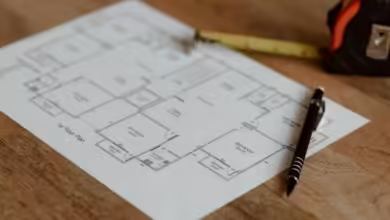Master Estate Planning: Essential Steps and Benefits for Securing Your Legacy

Table of Contents
Estate planning is a crucial process that ensures your assets are managed and distributed according to your wishes after your death. It’s more than just writing a will; it involves a comprehensive approach to organizing your financial affairs, protecting your legacy, and providing for your loved ones. In this article, we’ll delve into the key aspects of estate planning, why it’s essential, and the benefits it offers.
Understanding Estate Planning
Estate planning is the process of determining how your assets will be distributed upon your death. This includes not only your physical and financial assets, such as property, investments, and bank accounts, but also intangible assets like intellectual property and digital accounts. Effective estate planning involves creating legal documents such as wills, trusts, powers of attorney, and healthcare directives to ensure your wishes are honored.
Key Components of an Estate Plan
An estate plan typically includes the following key components:
- Will: A legal document that outlines how your assets will be distributed after your death. It also names an executor who will be responsible for carrying out your wishes.
- Trusts: Legal arrangements that allow you to place assets under the management of a trustee for the benefit of your beneficiaries. Trusts can help avoid probate, reduce estate taxes, and provide for minor children or dependents with special needs.
- Power of Attorney: A legal document that grants someone the authority to make financial decisions on your behalf if you become incapacitated.
- Healthcare Directive: Also known as a living will, this document outlines your wishes for medical treatment in case you are unable to communicate them yourself.
- Beneficiary Designations: Ensuring that your retirement accounts, life insurance policies, and other financial assets have up-to-date beneficiary designations is a crucial part of estate planning.
Why Estate Planning Is Important
Estate planning is not just for the wealthy; it’s essential for anyone who wants to ensure their assets are managed and distributed according to their wishes. Here are some reasons why estate planning is important:
- Protecting Your Loved Ones: Without an estate plan, your assets may not be distributed as you intended. An estate plan ensures that your loved ones are provided for and that your wishes are respected.
- Avoiding Probate: Probate is the legal process of validating a will and distributing assets. It can be time-consuming and costly, but with proper estate planning, you can minimize or avoid probate altogether.
- Reducing Estate Taxes: Planning estate allows you to minimize the impact of estate taxes on your heirs by taking advantage of tax-saving strategies, such as gifting assets during your lifetime or establishing trusts.
- Ensuring Continuity of Business: If you own a business, planning estate ensures that it continues to operate smoothly after your death. This can involve creating a succession plan or setting up a trust to manage business assets.
- Planning for Incapacity: An estate plan also addresses the possibility that you may become incapacitated and unable to manage your affairs. By designating a power of attorney and creating a healthcare directive, you can ensure that your financial and medical decisions are made according to your wishes.
The Benefits of Estate Planning
Planning estate offers numerous benefits, both during your lifetime and after your death. Here are some of the key advantages:
1. Peace of Mind
Knowing that your affairs are in order provides peace of mind. With an estate plan in place, you can be confident that your wishes will be carried out and that your loved ones will be taken care of.
2. Protection for Your Family
Planning estate ensures that your family is financially protected. By setting up trusts, creating a will, and designating beneficiaries, you can provide for your loved ones and protect their financial future.
3. Control Over Your Assets
An estate plan gives you control over how your assets are managed and distributed. You can specify who will inherit your assets, how they will be used, and when they will be distributed.
4. Minimizing Costs and Delays
Proper estate planning can help minimize the costs and delays associated with probate. By avoiding probate, you can ensure that your assets are distributed quickly and efficiently.
5. Reducing Taxes
Planning estate allows you to take advantage of tax-saving strategies that can reduce the tax burden on your heirs. This can include setting up trusts, making charitable donations, and gifting assets during your lifetime.
How to Start Estate Planning
Planning estate may seem overwhelming, but it doesn’t have to be. Here are some steps to get started:
1. Take Inventory of Your Assets
The first step in planning estate is to take inventory of your assets. This includes your physical and financial assets, such as property, bank accounts, investments, and personal belongings. You should also consider any digital assets, such as online accounts and intellectual property.
2. Determine Your Goals
Next, determine your goals for your estate plan. Do you want to provide for your children? Protect your spouse? Support a charitable cause? Your goals will help guide the decisions you make as you create your estate plan.
3. Consult an Estate Planning Attorney
Planning estate involves complex legal and financial issues, so it’s essential to consult with an estate planning attorney. An attorney can help you create a plan that meets your needs and ensures that your wishes are legally binding.
4. Create the Necessary Documents
Work with your attorney to create the necessary legal documents, including a will, trusts, power of attorney, and healthcare directive. Make sure these documents are up to date and reflect your current wishes.
5. Review and Update Your Plan Regularly
Your estate plan is not a one-time task. It should be reviewed and updated regularly to reflect changes in your life, such as the birth of a child, a marriage, or a change in financial circumstances.
Conclusion
Estate planning is a vital part of financial management that ensures your assets are protected and your wishes are honored. Whether you are just starting out or need to update your existing plan, taking the time to create a comprehensive estate plan will provide peace of mind and protect your loved ones. Don’t wait—start your estate planning process today to secure your legacy for the future.
External Links:
- What Is Estate Planning?
For a detailed overview of estate planning basics, visit Nolo’s Estate Planning Guide. - Benefits of Estate Planning
Learn more about the benefits and importance of estate planning at Forbes’ Estate Planning Insights. - Creating Your Estate Plan
Find expert advice on creating your estate plan from The American Bar Association’s Estate Planning Resources.





